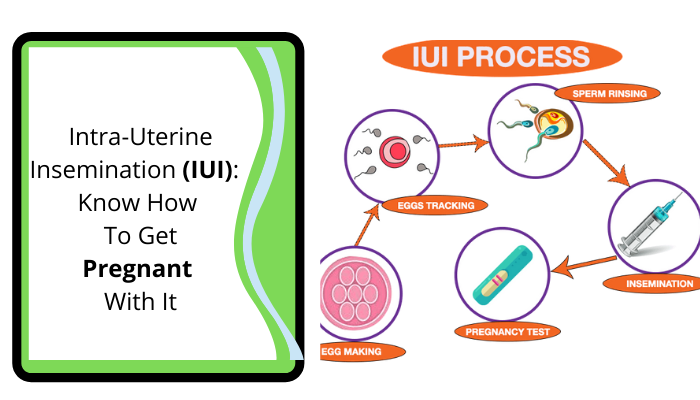
Intrauterine Insemination (IUI) is one of the most commonly used fertility treatments for couples struggling with infertility. It involves placing sperm directly into the uterus to increase the chances of fertilization. While IUI can be an effective solution for many individuals, it is not always the best choice for everyone. In this blog, we will explore the limitations of IUI treatment, helping couples better understand when it may or may not be the right option.
Understanding IUI Treatment
Before we discuss the limitations, it’s important to understand how IUI works. IUI is often recommended for couples experiencing fertility issues like:
- Mild male infertility (low sperm count or poor sperm motility)
- Unexplained infertility
- Cervical factor infertility (when the cervix blocks sperm from entering the uterus)
- Mild endometriosis
- Ovulation issues (such as irregular ovulation)
In IUI, sperm is carefully washed and concentrated before being inserted directly into the uterus during the woman’s fertile window. This ensures that the sperm reaches the egg more efficiently, increasing the likelihood of pregnancy.
Limitations of IUI Treatment
While IUI offers a less invasive, cost-effective alternative to more complex treatments like IVF, it has several limitations that may affect its success.
1. Not Suitable for All Fertility Issues
IUI is not effective for all causes of infertility. It tends to work best for couples with mild male infertility, unexplained infertility, or cervical issues. However, it is less likely to succeed in cases of:
- Severe male infertility: If the sperm count or motility is too low, IUI may not be effective. In these cases, treatments like IVF with ICSI (Intracytoplasmic Sperm Injection) may be recommended.
- Severe female infertility: Women with significant issues such as blocked fallopian tubes, severe endometriosis, or poor egg quality may not benefit from IUI.
- Advanced maternal age: As a woman’s age increases, the chances of successful pregnancy through IUI decrease, especially if ovarian reserve is low.
2. Success Rates Are Not Guaranteed
While IUI can be successful for many, its success rates are generally lower than more advanced fertility treatments like IVF. The success rate for IUI varies depending on several factors, such as the woman’s age, the cause of infertility, and the quality of the sperm used. On average, success rates range from 15% to 20% per cycle.
For older women or those with more complex infertility issues, the chances of success with IUI can be significantly lower. In such cases, IVF or other assisted reproductive technologies may be more effective.
3. Multiple Cycles May Be Needed
Many couples do not conceive on the first attempt with IUI. It’s common for doctors to recommend several cycles of IUI before considering more advanced treatments like IVF. The emotional and financial cost of repeated IUI cycles can be a significant burden for many couples. In some cases, repeated IUI cycles can lead to frustration, disappointment, and stress.
4. Risk of Multiple Pregnancies
While IUI itself does not directly cause multiple pregnancies, it is often combined with fertility drugs to stimulate ovulation. Fertility drugs can increase the chances of multiple eggs being released, which can result in a multiple pregnancy (twins, triplets, etc.). Multiple pregnancies carry a higher risk of complications, such as premature labor, low birth weight, and other health risks for both the mother and the babies.
To manage this risk, doctors may closely monitor ovulation and adjust medication dosages to ensure only one egg is released during each cycle.
5. Limited Effectiveness in Women with Low Ovarian Reserve
Women with low ovarian reserve or poor egg quality may not benefit from IUI. This is because even if sperm is placed directly into the uterus, the eggs may not be healthy enough to fertilize, or the chances of fertilization may be low. In such cases, IVF may offer a better chance of success, as it involves more direct intervention with egg retrieval and fertilization in the lab.
6. Limited to a Specific Timeline
IUI treatment is typically effective for women under the age of 35. As women age, the success rates of IUI decrease due to lower egg quality and quantity. For women over 35, doctors may recommend other treatments such as IVF earlier in the process to improve the chances of a successful pregnancy.
Conclusion:
IUI can be a great option for couples with certain fertility issues, offering a less invasive and more affordable approach compared to other treatments like IVF. However, it does have limitations, especially when it comes to severe infertility problems, advanced maternal age, or poor ovarian reserve. Success rates are not guaranteed, and multiple cycles may be necessary for a positive outcome.
Couples considering IUI should consult with a infertility specialist to determine whether it’s the right treatment for their specific situation. A tailored approach that considers all factors, including age, cause of infertility, and treatment history, will help guide you towards the best fertility treatment option.





Leave a Reply